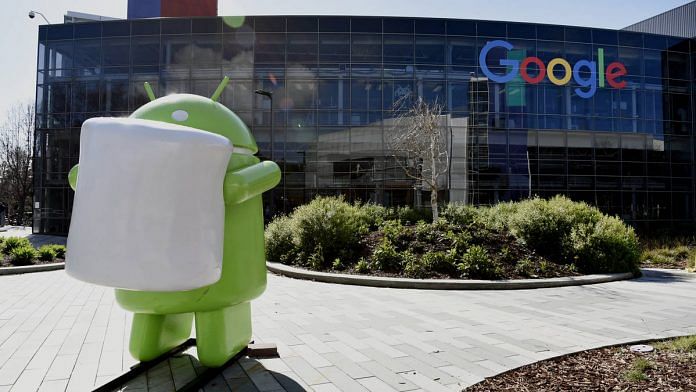Articles sometimes have a long gestation. One that I published this week had its roots in my disagreement with a three-year-old podcast.
In this 2016 episode of the Acquired podcast, David Rosenthal and Ben Gilbert assessed Google’s 2005 acquisition of the startup behind the Android operating system for smartphones. Rosenthal and Gilbert had a sensible view that Android was a powerful defensive shield that prevented Apple Inc. from standing between many smartphone users and Google apps and services.
Google parent company Alphabet Inc. today pays billions of dollars each year to Apple to ensure that its web search service is front and center on Apple’s Safari browser for iPhones and other spots on Apple gadgets. The thinking goes that if Google didn’t have Android — and iPhones had far more than a 15% market share of worldwide smartphone sales — Google would have to hand over much larger piles of money to Apple.
I agree with that assessment of Android as a defensive bulwark for Google, and it’s a view I’ve heard before. But at the time, I also believed that assessment of Android’s strategic value was too myopic. If Android had never existed, or if Google weren’t the company behind it, I don’t think smartphones would have become the globally ubiquitous technology that we now know them to be.
I kept my disagreement to myself, but it was a germ of an idea that I finally laid out in an article this week in Bloomberg Businessweek about how Android was behind the global smartphone revolution and why we may never see a technology like it again.
Writing that Android article also made me wonder whether I and others who write about technology for a living were focused on the wrong subjects when the smartphone boom was in its early days.
If you were following technology seven or eight years ago, loads of ink was shed on legal battles between companies like Apple and Samsung Electronics Co. — among many others — over who owned essential technologies used in the emerging category of modern smartphones. Companies spent billions of dollars to arm themselves with patents that might position them to withstand courtroom challenges.
With the benefit of hindsight, none of the legal fights mattered. Many of the smartphone legal fights were settled eventually with arguably little market impact. While a Samsung lawyer was calling Apple a “jihadist” and Steve Jobs threatened to “destroy” Android, people around the world were snapping up smartphones made by those companies and many others. Those people, many of whom were getting online for the first time, didn’t care one bit about who first had the idea of a rectangular mobile device with rounded edges.
Certainly no one in the tech industry or tech press ignored that transformation as it was happening, but the industry’s internecine smartphone skirmishes seem positively pointless now that we can see all that has happened. Soon, more than half the world’s population will own an internet-connected mobile device — a penetration that far exceeds Bill Gates’s wild mission to put a computer on every desk and in every home.
My question now is whether we are making similar mistakes again. Are the antitrust and regulatory fights over America’s technology superpowers overshadowing developments that will prove much more disruptive in a decade? Or will the technology cold war between the U.S. and China look irrelevant with the benefit of hindsight?
It’s hard to know for sure in real time. But looking back at the smartphone boom was a good reminder that inevitably, the day’s hottest headlines will be subsumed by the long arc of history.
Also read: WhatsApp flaws could allow hackers to alter messages: Cyber firm



